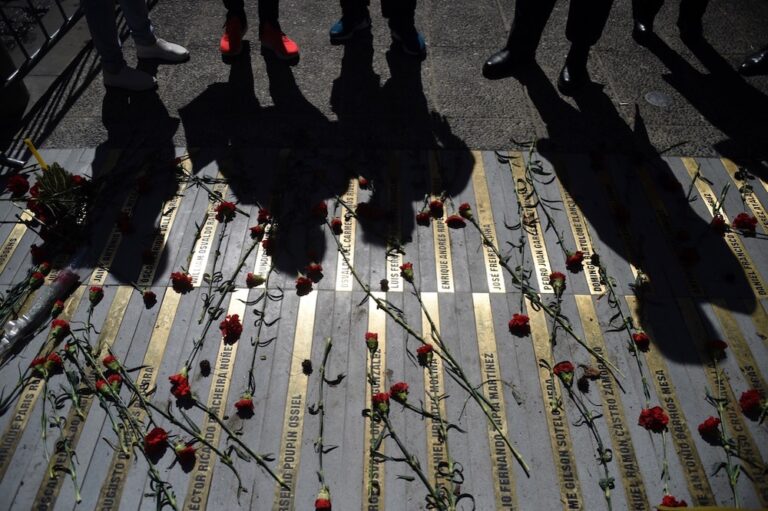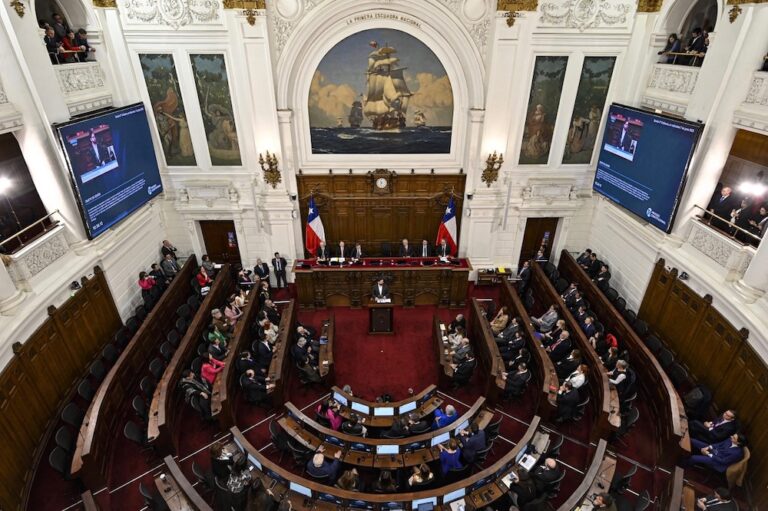The Agro TV community television station suffered an attack that resulted in the collapse of its broadcast tower and the destruction of most of its equipment.
(RSF/IFEX) – 24 November 2011 – At least five privately-owned local and community-based media organizations in three South American countries have been the targets of violent attacks in the past few weeks, depriving some of them of the means to broadcast. Reporters Without Borders is committed to helping them rebuild.
(. . .)
The community television station Agro TV, which covers local development issues, reported an attack on 21 October 2011 on its installations in Cerro Monjas, in Quillota province, near the central city of Valparaiso.
The cables supporting the station’s broadcast tower were cut, causing it to collapse and destroying most of its equipment. Since the incident, the station has been unable to broadcast.
Station manager César Ramos Silva is cautious about suggesting a motive for the attack but does not rule out the possibility of a link to a dispute with the commercial broadcasting industry.
“Besides my role as manager of the rural television station, I am also vice-president of the Chilean National Association of Community and Citizens’ Radio Stations (ANARCICH), and in recent months I have carried out numerous actions on the part of the organization against the abuses of commercial broadcasters,” Silva told Reporters Without Borders. “This has brought on the animosity of the president of the Association of Broadcasters in Chile (ARCHI), who also broadcasts from the same area as Agro TV.” Nevertheless, Silva said he had no formal proof to support this theory.
However, unfair competition exists and adds to the precariousness of community radio stations in Chile in the absence of adequate legislation giving them their proper place among the country’s broadcast media.
The possibility of closure through legal action hangs over Kimche Mapu ( http://radio-kimchemapu.blogspot.com ), a radio station of the indigenous Mapuche community, for “interception of telecommunications”, as a result of a complaint filed by Gilberto Santana, a local councillor and owner of the Radio Lanco radio station.
“This is unacceptable in view of the flagrant conflict of interest shown in this complaint,” Reporters Without Borders said. The procedural persecution of Kimche Mapu is shameful in view of the station’s limited range, which covers five communities and a total of 1,300 people. “For some time, Kimche Mapu has been seeking full official recognition and this process has been unduly delayed.”
The press freedom organization joins AMARC, the World Association of Community Radio Broadcasters, in calling for the reform or replacement of Chile’s community and citizens’ radio law enacted in 2010.
2011 has also been marked by numerous instances of brutality by security forces towards the press during student protests. Reporters Without Borders condemns the detention and ill-treatment of Estebán Sánchez, of the ADN radio station, and his Brazilian colleague, the independent journalist Victor Farinelli, by the Carabineros armed police. The two journalists were detained on 21 November during a controversial tribute to Miguel Krassnoff, a former officer convicted of human rights crimes committed during the Pinochet dictatorship.


